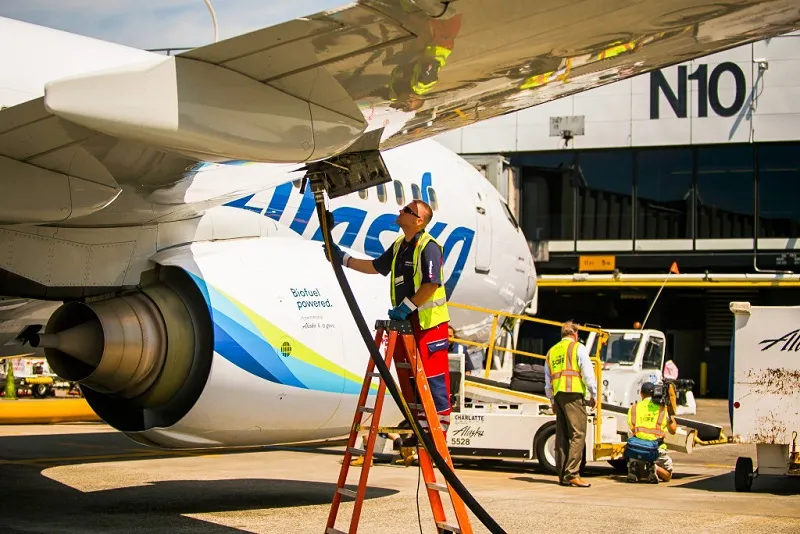
Boeing and Airbus boost support for North American sustainable fuels
Jul 16, 2021

Boeing and Airbus are enhancing their support for sustainable aviation fuels in North America, recognizing the urgent need for greener alternatives in the aviation industry. Both companies are collaborating with various stakeholders, including fuel producers and regulatory bodies, to accelerate the development and adoption of sustainable fuels. Their initiatives aim to significantly reduce carbon emissions and promote environmental sustainability while ensuring the continued growth of air travel. By investing in research and partnerships, Boeing and Airbus are positioning themselves as leaders in the transition to a more sustainable aviation ecosystem, ultimately benefiting both the industry and the planet.
The Current Landscape of Sustainable Aviation Fuels
As the aviation industry faces increasing pressure to reduce its carbon footprint, "Boeing" and "Airbus" have stepped up their commitment to sustainable aviation fuels (SAF). These fuels represent a key component in the industry's strategy to achieve net-zero emissions by 2050. The transition to SAF is not only essential for environmental sustainability but also offers economic opportunities and strategic advantages for both manufacturers and airlines.
Investment in Research and Development
Boeing and Airbus have recognized the importance of investing in research and development (R&D) for sustainable fuels. Both companies have allocated significant resources to innovate and improve the production processes for SAF. This investment aims to reduce costs and enhance the overall efficiency of these alternative fuels.
According to recent reports, Boeing has invested over "$100 million" in SAF projects, while Airbus has partnered with various stakeholders in the aviation ecosystem to promote the use of these fuels. The chart below illustrates the respective investments and partnerships of both companies in the realm of sustainable aviation fuels:
| Company | Investment in SAF (in million $) | Key Partnerships |
|---|---|---|
| Boeing | 100 | NASA, "SAF producers", various airlines |
| Airbus | 50 | Various "airline alliances", universities |
Collaboration with Airlines
To effectively promote the adoption of SAF, both Boeing and Airbus are collaborating closely with airlines. These partnerships are crucial in demonstrating the viability and benefits of using sustainable fuels in commercial aviation. Major airlines are increasingly interested in integrating SAF into their operations, and both manufacturers are providing the necessary support and resources to facilitate this transition.
Airlines such as "United Airlines", "Delta Air Lines", and "Lufthansa" are already participating in SAF programs supported by Boeing and Airbus. The goal is to create a robust supply chain for sustainable fuels, ensuring that airlines have reliable access to SAF at competitive prices.
Regulatory Support and Policy Initiatives
Government policies play a pivotal role in boosting the adoption of sustainable aviation fuels. Boeing and Airbus are actively engaging with policymakers to advocate for favorable regulations and incentives that promote SAF development and use. This includes tax credits, grants, and subsidies aimed at reducing the financial burden on airlines and fuel producers.
Recent initiatives in North America, including the "U.S. Sustainable Aviation Fuel Grand Challenge", aim to accelerate the production and use of SAF. Both Boeing and Airbus are at the forefront of these efforts, working to shape regulations that support a sustainable aviation future.
The Environmental Impact of Sustainable Aviation Fuels
The environmental benefits of SAF are substantial. Compared to traditional jet fuels, sustainable aviation fuels can reduce greenhouse gas emissions by up to "80%" over their lifecycle. This significant reduction is achieved through the use of renewable resources, such as waste oils and agricultural residues, which help lower the carbon intensity of air travel.
Moreover, the production of SAF can stimulate local economies by creating jobs and supporting agricultural sectors. As Boeing and Airbus continue to promote sustainable fuels, the potential for a positive economic impact is becoming increasingly evident.
Challenges Ahead
Despite the promising advancements, there are still challenges that need to be addressed before SAF can be widely adopted across the aviation industry. One of the main hurdles is the limited availability and high production costs of sustainable fuels. Boeing and Airbus are working to overcome these barriers through collaborative efforts with fuel producers and technology developers.
Additionally, public awareness and acceptance of SAF are essential for fostering a supportive market environment. Both companies are focusing on educating the public about the benefits of sustainable aviation fuels and their role in combating climate change.
Conclusion: A Sustainable Future for Aviation
Boeing and Airbus are leading the charge in the aviation industry’s transition to sustainable fuels. Through investments in R&D, partnerships with airlines, and advocacy for supportive policies, both companies are paving the way for a more "sustainable aviation future". As they continue to innovate and collaborate, the hope is that sustainable aviation fuels will play a critical role in reducing the environmental impact of air travel, ensuring that the skies remain accessible and environmentally friendly for generations to come.
Related Articles

Explore Thailand: The Best Islands to Visit for Paradise, Adventure, and Relaxation

The Ultimate Guide to the Best Islands in Thailand for Your Next Getaway

Do babies need passports? How to get a passport for a newborn

How to get a U.S. passport fast: here’s how to expedite the process

What is Mobile Passport Control: 5 reasons why you should use it

SENTRI vs. Global Entry: A detailed guide

Do you need a passport to go to the Bahamas? Let’s find out

Do you need a passport to go to Mexico? A detailed guide

Do you need a passport to go to Canada? We got the answer

Do You Need a Passport for a Cruise: An Essential Travel Guide

Booster Seat Requirements: All the Rules to Follow in Your Rental Car

What Are the World’s Most Powerful Passports, and How Does Yours Rank?

How to Take a Passport Photo at Home: A Helpful Guide

You've got to have heart! Southwest's new livery

Your opinion: Should water be free on low cost carriers?

Young women bolder than guys as solo travellers
